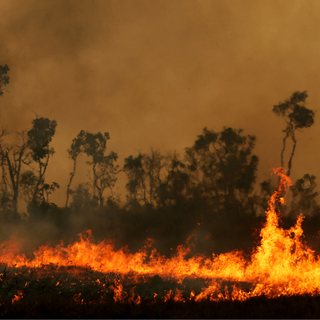Beekeepers in Karnataka are worried about a viral disease called “Thai Sacbrood” that is threatening colonies of honeybees in the region.
“Thai Sacbrood” first emerged in Thailand in 1976. The virus has resurged in India at different points in time over the years since — in fact, it had reportedly infected around 90% of all honeybee colonies in southern India between 1991 and 1992.
“A few years back we discontinued beekeeping due to the outbreak of this virus in south[ern] India… Now, we see Thai sacbrood virus active again in the bee colonies,” Nagendra Sagar, a professional beekeeper from Karnataka, told Mongabay.
The viral disease kills bees when they are young — in the larva stage — preventing their populations from multiplying. It can also spread from one honeycomb to another — even by an act as simple as a beekeeper touching a healthy honeycomb after being in contact with an infected one.
Sagar believes the “migration of bees from different states could be one reason for this outbreak.”
However, scientific research on the present outbreak is lacking — even though news of the disease resurfacing has been around since March. “Since it does not affect humans, we speculate that the scientific community is ignoring the spread. So, there is no major research happening in this field,” Sagar noted.
Related on The Swaddle:
Air Pollution Is Impacting Health of India’s Bees, Wild Pollinators: Study
While the virus may not affect human health, it does affect livelihoods of people — due to its adverse impact on the production of “bee products” like honey, wax, royal jelly, and propolis, the antibiotic that helps to fight certain infections and heal wounds.
The disease can negatively impact food security as well since bees play a crucial role in pollination, which is integral to food production.The Food and Agriculture Organization of the United Nations stated in a 2018 report that 75% of the world’s food crops depend, at least in part, on pollination — and India, which is presently experiencing the outbreak, is among the largest fruit and vegetable producers in the world.
Bees are critical to the ecosystem, too, since pollination sustains a variety of flora — supporting different species of fauna, in the process. Many birds and insects, too, depend on bees for honey.
Amid rising concerns about the far-reaching impacts of the outbreak, state authorities have taken note of the resurgence of the virus. “We have informed the concerned minister and officials to look into it,” said Ananth Hegde Ashisar, chairman of Karnataka’s Biodiversity Board, a government body involved in conservation and promotion of sustainable use of the state’s biodiversity.
He also added that the board is “planning to declare the honey bee as a ‘state insect,’ considering its importance in the ecosystem” — a move that may prompt the state to pay greater condition to the threat honeybees are facing.
“[I]f the spread continues, [the virus] might lead to the extinction of the most domesticated species of bees in south India,” an article on Mongabay noted, adding that in the absence of research on the subject, the virus “may spread to other parts of the world and may not be contained within south[ern] India.”




